Kate Feist ’27 wins 2025 Goldwater Scholarship for Parkinson’s research
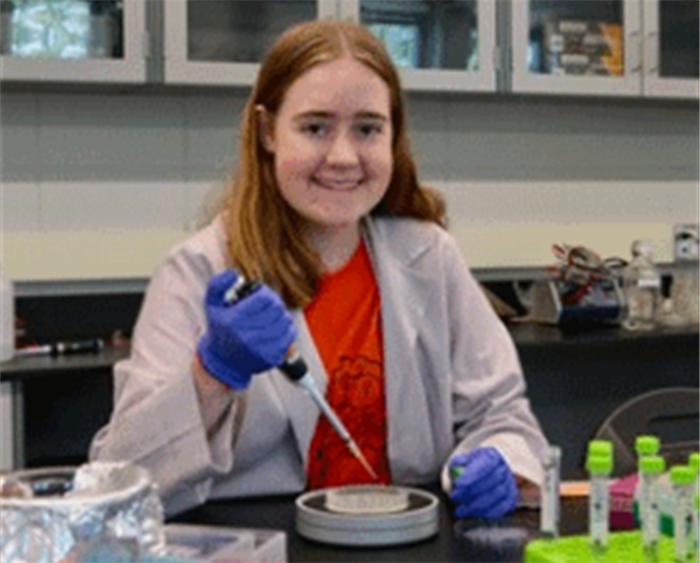
Science double major and student-athlete Kate Feist ’27 has been named a 2025 Goldwater Scholarship recipient for her research on the causes of Parkinson’s disease, the prestigious national organization announced.
In all, the Goldwater Foundation awarded 441 tuition scholarships to college students from across the United States for the 2025-2026 academic year. The winners were chosen from a competitive pool of over 5,000 college sophomores and juniors who applied.
The Scholarship Program honoring Senator Barry Goldwater supports outstanding undergraduates interested in pursuing research careers in the sciences, engineering, and mathematics. It is the preeminent undergraduate award of its type in these fields.
Feist is the only student from a small liberal arts college in Illinois selected this year and one of only five students from the Associated Colleges of the Midwest (ACM) consortium of 14 national liberal arts colleges to earn a Goldwater Scholarship.
“I’m very grateful to be nominated by and represent Lake Forest College for this award, and to be selected by the Goldwater Foundation—especially since I am surrounded by an incredible community of talented and dedicated peers at the College,” she said.
Feist earned her scholarship for the research she has conducted over the past year and what she has proposed to conduct in Disque D. and Carol Gram Deane Professor of Biology, Biochemistry & Molecular Biology and Neuroscience Shubhik DebBurman’s “D-Lab,” which is located on the second floor of the Lillard Science Center.
“The Goldwater is simply the most prestigious and unbelievably competitive scholarship in the nation for students that plan to pursue PhDs in STEM fields,” DebBurman said.
“As Kate’s academic and research advisor, I am absolutely delighted but not surprised that she was selected, despite being a sophomore.”
“She is a truly exceptional scholar with a laser sharp focus who has displayed a rare level of intellectual rigor and infectious love of scientific process and discovery,” DebBurman said.
“Her work ethic stood out within days of joining my research team at the end of her first year. She has already presented at a national meeting and independently carved out an ambitious, original, and innovative two-year project that could push the boundaries of knowledge in Parkinson’s disease.”
In the D-Lab
“I joined the D-Lab as a Richter Scholar after the end of my freshman year,” Feist, a neuroscience and biochemistry and molecular biology double major, said. “I immediately started doing complex biology work on mutagenesis genetic engineering. I wrote about that in my Goldwater application and also laid out some ideas that I have for future research in the lab.”
Mutagenesis genetic engineering is the process of intentionally inducing mutations in the DNA of an organism.
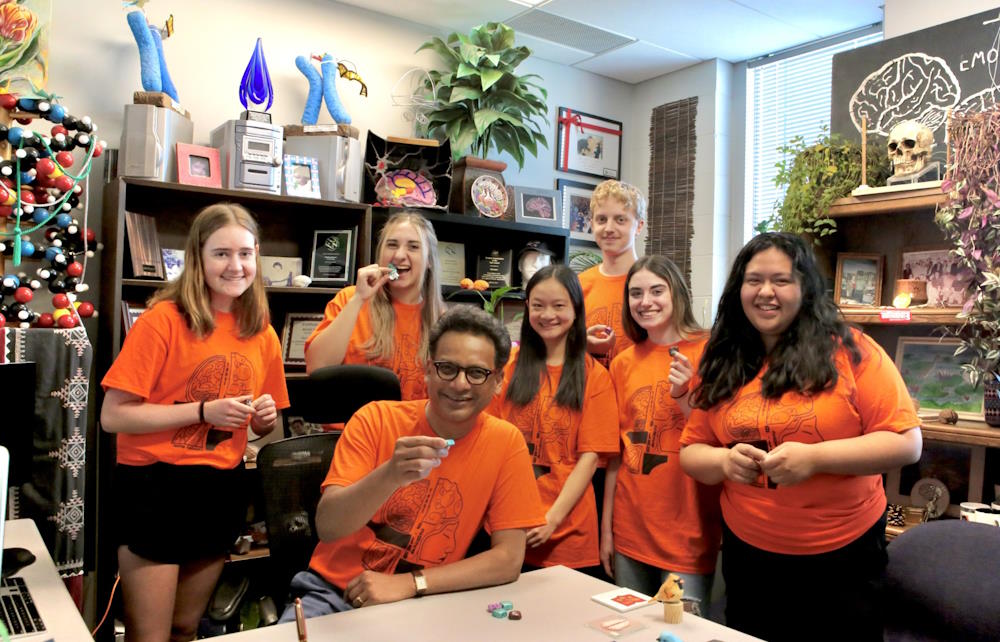
“I suggested in my application new ways to look at the molecular structure of alpha-synuclein, which is one of the proteins that can cause Parkinson’s disease, both genetically and sporadically. I wrote out a proposal for a new way to modify this protein and look at the potential effects of how doing that might contribute to its aggregation and toxicity in Parkinson’s disease,” Feist said.
Feist and DebBurman collectively came up with ideas “to kind of build off of the work I did this year with Sebastian Gacek ’25 for his senior year research,” she said. “We looked at how that could be expanded on in a kind of new direction that we could go.”
Feist will spend 10 weeks this summer working in the lab to explore those ideas.
“I do enjoy doing research and it’s nice to have that time with no other classes—or no other distractions really—that I can just focus on research and dedicate all my effort and attention to it,” she said.
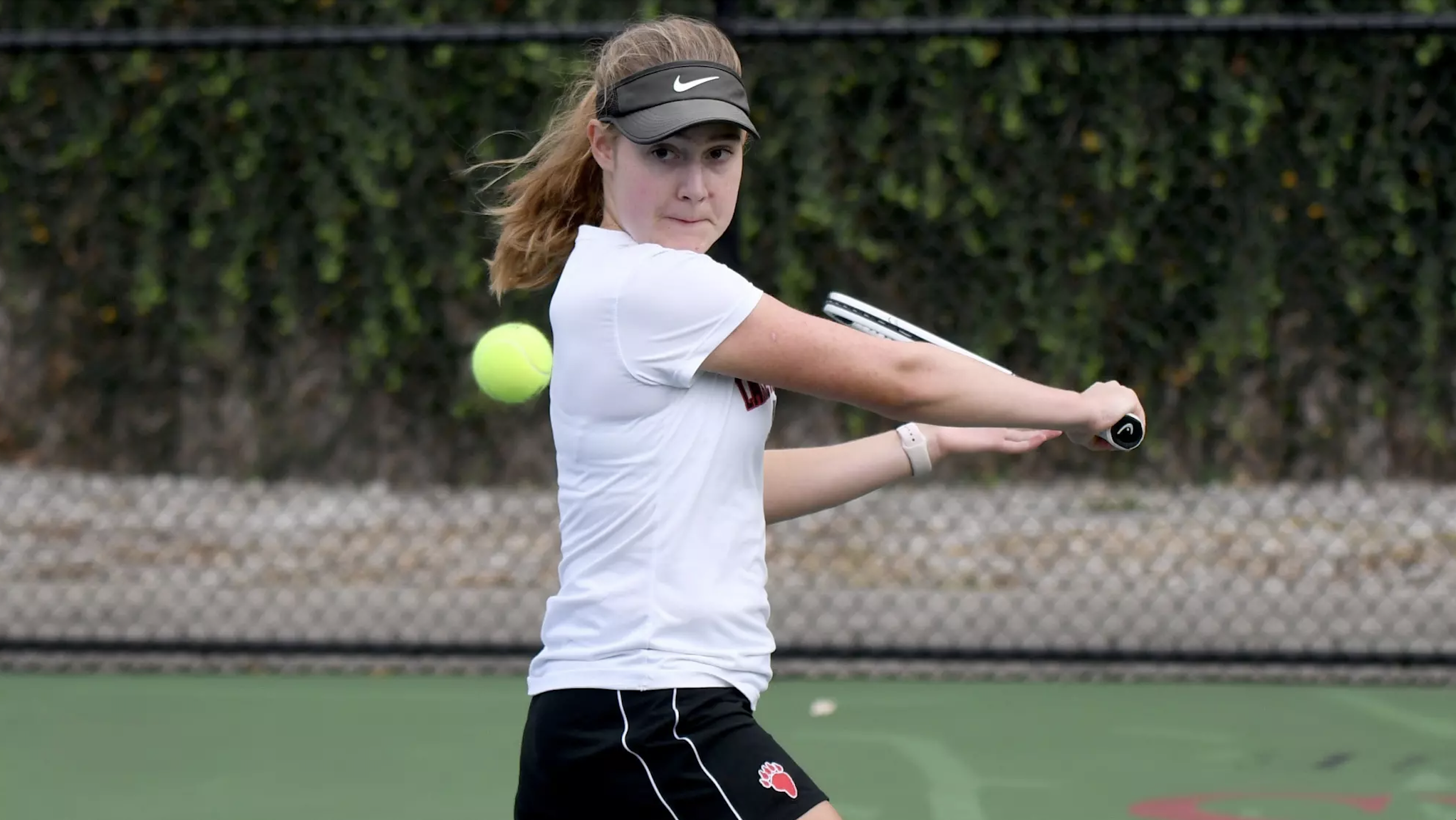
The importance of athletics
Feist strongly believes her participation on the Forester women’s tennis team improves her academic performance.
“I love exercising. There’s a lot of research on how exercise helps the brain and how hippocampal neurons regenerate when you exercise, which helps memory. So I definitely credit part of my success with being an athlete,” the singles and doubles player said.
“And the environment of being on the team, having that time every day that I’m forced to step away from the textbooks and the cells and just kind relax, is a good change of pace and something to break up my day. It’s also purposeful. Those are both aspects that I really enjoy.”
Admittedly, Feist has little free time. But that’s a trade-off she’s willing to make.
“It is definitely a challenge, and I make sacrifices to make it work,” she said. “But I really enjoy tennis and I really enjoy the academics I’m involved in, so it’s definitely something that I’m okay with.”
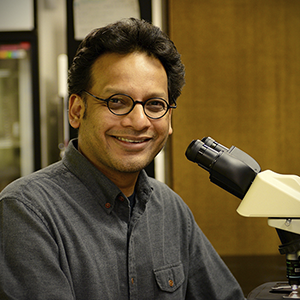
Plans for the future
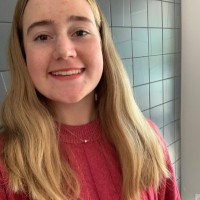 “I would like to get a PhD, likely in neuroscience or biochemistry or molecular biology, cell biology, immunology, something along those lines,” Feist said.
“I would like to get a PhD, likely in neuroscience or biochemistry or molecular biology, cell biology, immunology, something along those lines,” Feist said.
“I’m currently really interested in the brain-gut connection and how the bacteria and neurons in your stomach communicate with your brain. That’s something I might be interested in researching in the future.”
Feist’s love of science—and research—started years ago.
“Science was always my favorite subject. I also liked psychology, which is kind of how I came to neuroscience. My senior year of high school I had the opportunity to participate in a research program where we were mentored to create our own project and then do research on a baseline level just to get exposed to it. I really enjoyed being a part of that program and spending time in the lab and working with cells. After that experience, I was a little more certain I want to go into some sort of molecular science in college.”
More about the Goldwater Scholarships
In all, 1,350 students in science, engineering, and mathematics were nominated by 445 colleges and universities for the 2025 Goldwater Scholarships. Of the selected Scholars who reported demographic information, 203 are men, 222 are women, and nearly all plan to pursue a PhD as their highest degree.
Goldwater Scholars have gone on to win an impressive array of prestigious awards, becoming National Defense Science and Engineering Graduate Fellows, NSF Graduate Research Fellows, Hertz Fellows, DOE Computational Science Graduate Fellows, Astronaut Scholars, Churchill Scholars, Marshall Scholars, and Rhodes Scholars.

